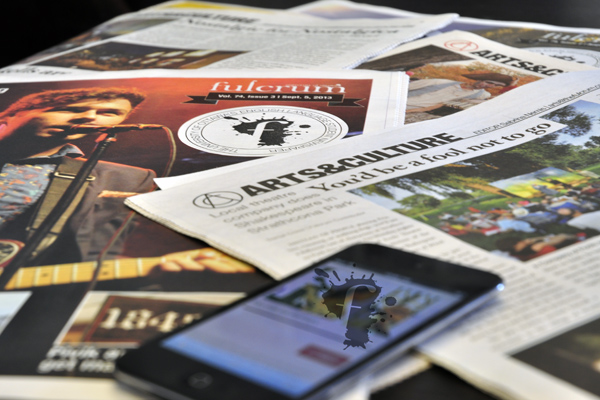How to watch TV and still have friends
Now that the fall television season is in full swing, it’s probably a good time to talk about a distasteful social phenomenon sweeping through university campuses everywhere: spoilers.
Many have fallen victim to whispers of unwanted plot information regarding their favourite TV shows. Luckily, these kinds of spoilers are easily avoided if you remain cautious and vigilant. Here are five tips on how to establish clear-cut spoiler etiquette for the fall TV season.
1) Establish spoiler quarantine zones
If you are forced to talk about highly sensitive plot information in a public forum, it’s probably a good idea to quarantine your friends and yourself in a designated spoiler zone. These spoiler zones can be small rooms or other self-contained areas that have relatively impenetrable, soundproof walls. Ideally, these areas should only be accessible to those who are up to date on the topic of discussion and should exclude those who have fallen behind. The study rooms available in Morisset Library are good examples of effective spoiler zones.
2) Speak in ambiguous terms
If you feel compelled to talk about your favourite TV shows outside of these spoiler zones, it’s probably a good idea to try to mask specific plot details using precise language. Speaking in general or ambiguous terms is key to creating a spoiler-free environment. For example, a statement of general enthusiasm like, “The third season of The Wire is amazing!” is perfectly acceptable. However, something along the lines of, “You won’t believe what (character A) does to (character B) at the end of season three of The Wire!” contains way too many plot details for the uninitiated viewer.
3) Be conscious of what you share via social media
There’s nothing wrong with passing around funny memes or GIFs through social media sites, but before you post these humorous images, make sure to select your audience carefully. These fun distractions usually rely on vital plot information and character development as the meat of their humour, and this can easily constitute a spoiler for specific recipients. In any event, please be cautious of what you post and who is receiving it. At the very least, please issue some bright red “spoiler alert” text on your post if it’s going to be sent to the masses.
4) Beware of the Internet
To expand on the last point, you should probably avoid the Internet altogether since it’s basically the Wild West in terms of unfiltered plot information. This is especially true for shows like Game of Thrones and The Walking Dead, which have been building up spoiler-y discussions online for several years because of their origins as a book and graphic novel. So, if you’re behind on your favourite show, the bottom line is this: stay the hell away from Google.
5) Make sure you know the language of spoilers
Unfortunately, not everybody chooses to adhere to this kind of spoiler etiquette. Thankfully, there are ways to intercept a potential spoiler in everyday conversation if you know how to anticipate specific trigger words or phrases. For example, when a careless friend says something like, “This detail isn’t important, so…” or, “This really isn’t a spoiler, but…” be sure to expect an incoming spoiler.
To successfully defuse this situation, be sure to give your friend a good slap and then calmly escort them to the nearest designated spoiler quarantine zone.









